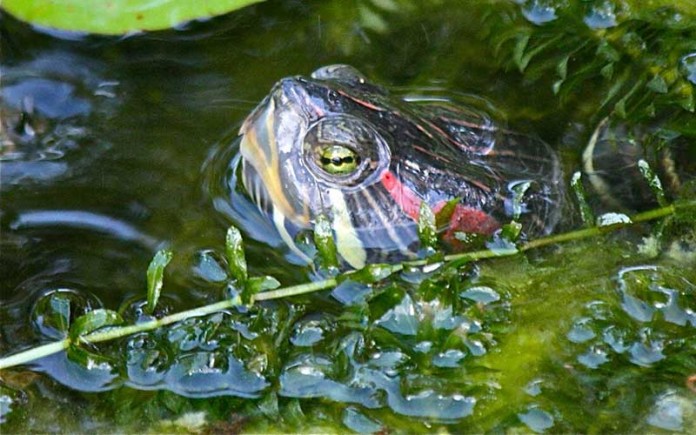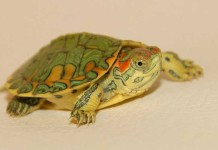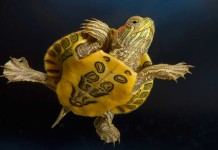Red eared sliders, like many reptiles, tend to live a long time in captivity. In the wild, they usually die because of predation, being out-competed, or by disease. In captivity, however, these are not issues so they tend to just go and go. Many people don’t realize that when they buy that little baby slider at the pet store that they are signing up for a 50-70 year commitment!
As often happens with pet parrots, the owner may pass away and leave a red eared slider behind for relatives or an animal rescue service to inherit. So what do you do with these old-timers? The answer is a lot simpler than you may think. Like any aging animal from any species, an old slider’s various systems simply do not function like they used to. They can’t tear off hunks of meat or veggies like they used to and they can’t metabolize vitamins and minerals as well as they used to. Therefore, they need special care.
When it comes to your aging red eared slider and its diet, it’s all about observation. Pay attention when you feed him. Is he eating the food you provide? Does he look like he’s having a hard time biting off hunks of food? If so, it’s time to take action. You don’t want to wait until it’s too late. Take the time to chop his food into bite-sized chunks so that he can easily get them into his mouth and swallow them. Make sure you put in plenty of his favorite food in case he starts to get finicky; quite often this will keep him interested and ward off the frustration and malaise that often comes when an animal gets older and has a hard time.
You may not be able to see your elderly red eared slider’s internal systems functioning, but if you pay close attention you can see the consequences. Turtles that aren’t properly metabolizing their food may have loose stool, appear lethargic, develop infections, or get a soft shell. The key to dealing with these issues in nipping them in the bud before they ever happen. Because you know that older sliders have a harder time properly metabolizing their nutrients, you can head the problems off at the pass. Make sure that you always give your slider his proper supplements – a good reptile multivitamin high in calcium and vitamin D3.
Taking care of your aging red eared slider from the inside out is what is key. You have to buff up its aging immune and digestive system so that you don’t get that avalanche effect when something starts failing. In general, once one system starts crashing, the rest start falling and the entire turtle goes downhill. By paying attention and taking preventative care, you can give your geriatric slider the best life possible.
Recommended: Calcium with Vitamin D3











